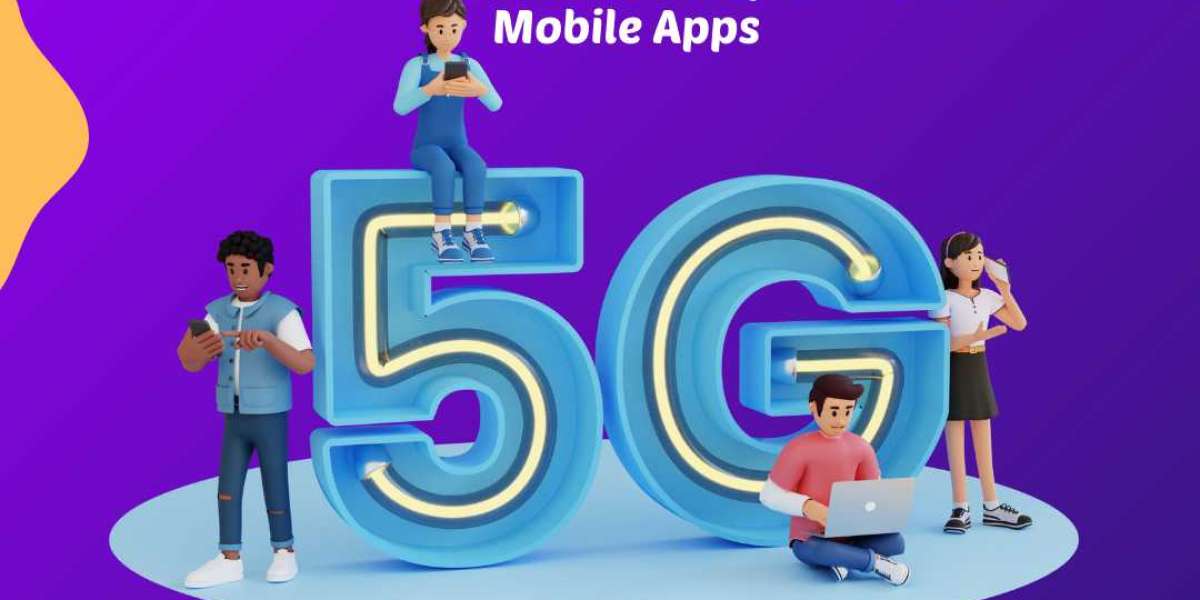As we step into a new era of mobile connectivity, 5G technology is quickly becoming a game changer. With promises of faster speeds, lower latency, and more reliable connections, 5G is poised to revolutionize the way mobile apps are developed and used. But what does this mean for app developers, businesses, and end-users? In this blog, we’ll explore how 5G is reshaping mobile app development, backed by insights from Vinove, a leading app development company.
What Is 5G and Why Does It Matter for Mobile App Development?
5G, the fifth generation of mobile network technology, offers significantly faster data transfer rates, lower latency, and the ability to connect more devices simultaneously. While 4G paved the way for Custom Mobile App Development as we know them today, 5G opens up new possibilities in terms of speed, functionality, and user experience.
Here are some key advantages of 5G:
- Faster Speeds: Up to 100 times faster than 4G, enabling quick downloads and seamless streaming.
- Lower Latency: Almost zero lag time, allowing real-time communication and interactive features.
- Higher Capacity: 5G can support more devices without compromising performance, which is essential as the Internet of Things (IoT) continues to expand.
As a result, mobile app development is evolving to take full advantage of these capabilities. But what are the direct implications for developers and businesses?
1. Improved App Performance and Speed
One of the most obvious impacts of 5G on mobile app development is the improvement in app performance. Faster speeds mean users can download apps in a fraction of the time, stream high-definition content without buffering, and load pages instantly. For businesses and developers, this opens the door for more sophisticated, content-heavy apps with smoother, faster performance.
Vinove’s Insights:
According to Vinove, app developers can now implement features that require substantial data transfer, like Augmented Reality (AR), Virtual Reality (VR), and cloud-based gaming. These features were once challenging due to the limitations of previous mobile networks, but 5G’s high speeds and low latency have made them more feasible.
2. Real-Time Data and Enhanced User Experience
5G’s ultra-low latency makes real-time interactions a reality. Mobile apps, especially in fields like healthcare, finance, and gaming, can now offer instantaneous responses, enhancing user experiences significantly. For instance, in healthcare apps, 5G can enable real-time remote patient monitoring, which could save lives by transmitting vital health data instantly. Similarly, in mobile gaming, players can experience near-zero lag, creating a competitive edge in multiplayer online games.
Vinove’s Insights:
Vinove highlights that real-time collaboration in apps—whether for business or entertainment—will see drastic improvements. With 5G’s reduced delay, businesses can enhance user interaction and engagement with their mobile applications, offering experiences that were previously unthinkable.
3. The Rise of AI and Machine Learning in Mobile Apps
With the immense bandwidth and speed that 5G offers, apps can process large amounts of data in real time, making AI and machine learning capabilities more powerful and accessible. Developers can integrate more advanced AI features in apps, allowing them to learn and adapt to user behavior instantly, providing a more personalized experience.
Vinove’s Insights:
Vinove stresses that the combination of AI and 5G will result in smarter, more intuitive apps. This means mobile apps will be able to handle complex tasks like voice recognition, real-time language translation, and predictive analytics seamlessly. Users will benefit from faster, more accurate responses as the app adapts to their needs in real-time.
4. IoT Integration and Smart Apps
The Internet of Things (IoT) is set to thrive with 5G’s higher device capacity. With 5G, apps can support the interconnection of millions of devices—from smart home gadgets to wearables, and even industrial machinery. This opens up new opportunities for developers to create smart apps that communicate effortlessly with various IoT devices, offering seamless automation and remote control.
Vinove’s Insights:
Vinove highlights that IoT-driven apps will evolve with the deployment of 5G, making smart homes, cities, and industries more connected than ever before. For instance, smart traffic systems, connected wearables for health monitoring, and even autonomous vehicles will become much more efficient with the speed and reliability of 5G. Developers can now create IoT-based apps that perform real-time data analysis, leading to more intelligent decision-making and improved user experiences.
5. Enhanced AR/VR Experiences
One of the biggest beneficiaries of 5G is Augmented Reality (AR) and Virtual Reality (VR). These technologies demand high data transfer rates and low latency to function optimally. With 5G, these applications can become more immersive and responsive, allowing developers to offer real-time interaction with 3D objects and environments.
Whether it’s for virtual shopping experiences, interactive learning apps, or AR-based games, 5G will significantly enhance how users interact with augmented and virtual worlds.
Vinove’s Insights:
According to Vinove, AR/VR apps will become mainstream with 5G. Industries such as retail, education, and entertainment will benefit from creating experiences that fully immerse users. Virtual fitting rooms and virtual travel experiences will become more realistic and responsive, taking customer engagement to new heights.
6. Cloud-Based Mobile Apps
With 5G, the cloud becomes even more powerful for mobile apps. Cloud-based mobile app development can offload computationally heavy tasks, such as video processing or data analysis, to the cloud, allowing the app to run more efficiently on lower-end devices. Faster internet speeds will enable cloud apps to perform tasks in real time, making them even more valuable for users.
Vinove’s Insights:
Vinove believes that the ability to stream apps from the cloud will become more prevalent with 5G. Apps that once required powerful hardware can now rely on the cloud for heavy processing, opening doors for new mobile app experiences without taxing device performance.
Final Thought: The Future of Mobile App Development with 5G
5G is undoubtedly a game-changer for mobile app development. With its ability to deliver faster speeds, lower latency, and greater capacity, 5G enables developers to create more advanced, interactive, and efficient apps. The ability to integrate emerging technologies like AI, AR/VR, and IoT will push mobile app development to new heights, creating opportunities for businesses to engage users in innovative ways.
Website: https://digixvalley.com
Email: [email protected]
Phone Number: +1205–860–7612
Address: Frisco,Salt Lake City, UT












